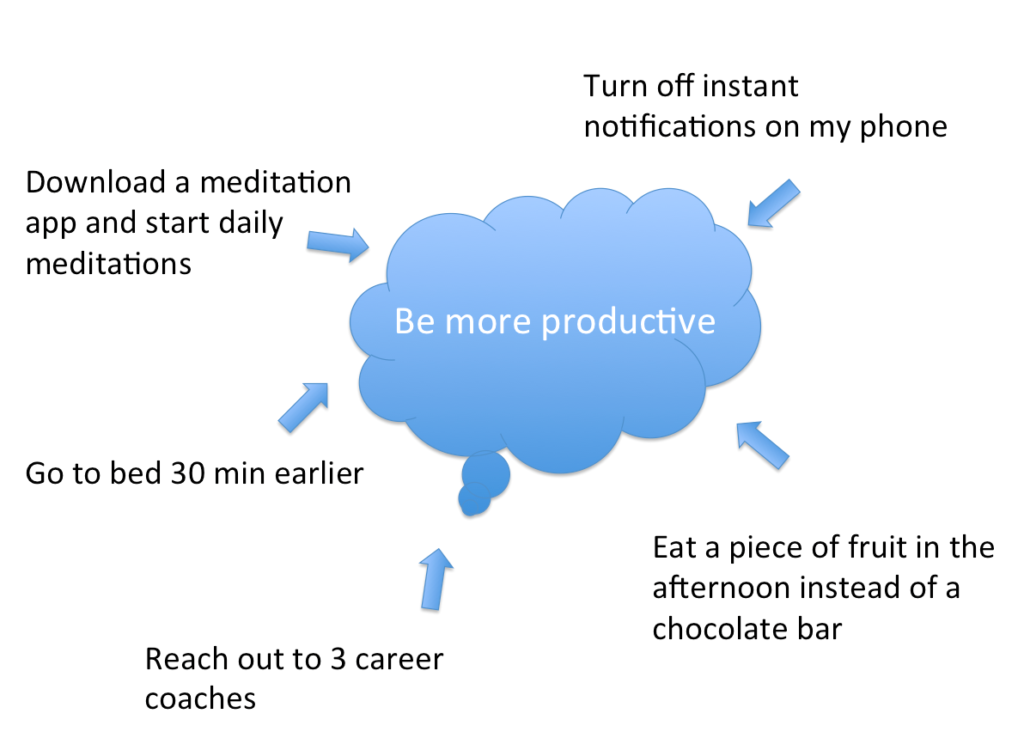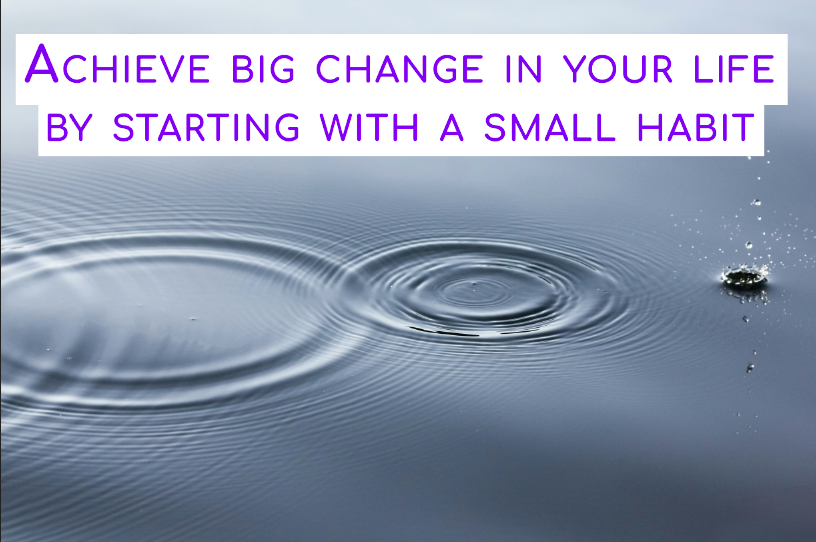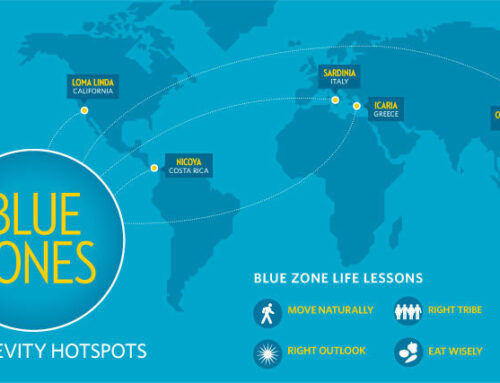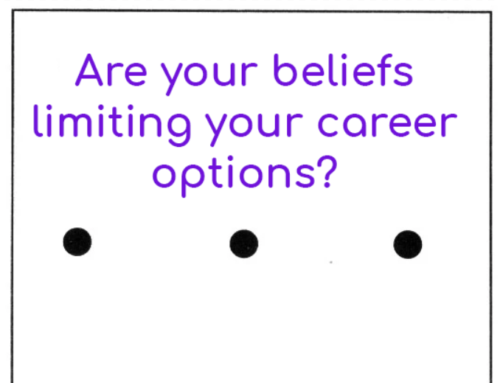It’s 2 weeks ago since I spoke to you about being a role model to your loved ones by changing your perspective and using this unusual time as a source of growth.
Hence I’m challenging you to see the present situation as something that’s happening for you, instead of something that’s happening to you.
Over the last couple of years I have been hugely influenced by the growing body of work in Behavioural Psychology that talks about ‘tiny habits or ‘mini habits’ as the best way to affect behaviour change. The overarching idea is that if you want to achieve a big change in your life, you need to start with a focus on 2-3 small habits.
In other words, create a tiny habit, find out where it fits naturally in your life, and then nurture and grow it. Also, celebrating is very important every time you complete the habit. These initial tiny habits will act as a catalyst to much bigger change.
I have used these tiny habit methods in my personal life (to eat healthier and lose weight for my upcoming wedding) as well as in my professional life (to work more productively).
Earlier in my life, I usually made the mistake to rely on motivation to help me achieve a challenge like losing weight, but the problem is that motivation is always in limited supply. At some point it runs out, and then it becomes impossible to stay on track and achieve your aspiration!
Do you recognise this feeling of failing at something you really want to achieve, time and time again? If you do, I want to help you put a stop to it.
You should set aside 30 min to this exercise, and if you have any questions on it, just drop me an email.
1. Clarify your aspiration
What’s the most important aspiration you’d like to achieve? Assuming it’s ‘to change my role or career’, write it down in the middle on a piece of paper. It doesn’t have to be worded perfectly just yet. The more you think about it the more you might realize that your true aspiration is to feel happier and more fulfilled in your role, whether that means a change or not.
2. Explore Behaviour Options
Get ready for a fun brainstorming session which we’ll call the ‘Swarm of Behaviours’.
Create a cloud shape around your aspiration. Around the cloud, start writing several behaviours which might help you achieve this aspiration. Taking the example aspiration of ‘Be more productive’, these could be examples of specific behaviours – 1. Turn off instant notifications on my phone, 2. Eat a piece of fruit in the afternoon instead of a chocolate bar, 3. Reach out to 3 career coaches, 4. Download a meditation app and start daily 10 min meditations etc. etc.
Keep asking yourself ‘what else’, even if some of your ideas seem wildly optimistic or even wacky. Aim for 10 ideas – feel free to also ask your partner, a good friend or a family member. You might be surprised about what they come up with!
Once you’ve got about 10 ideas down, go over them again, one by one, and try to make them more specific. Taking the example of ‘Downloading a meditation app’, the first step might be to research the 3 best ones, sleep on it and then give the first one a go for only 3 min at a time.

3. Match with specific behaviours
Determining the right kind of behaviours (‘Golden behaviours’) for you is key. These are behaviours:
a) which have the biggest impact on making your aspiration come true
b) which you feel most motivated to do
c) for which you already have the highest ability to complete them
So take the 10 behaviours, and rank them according to these 3 principles – impact, motivation and ability. Your ‘Golden behaviours’ are the ones that score highest on these 3.
4. Start Tiny
We’ve already established that motivation is unreliable, and that’s exactly the reason why we have to start tiny.
When the behaviour is tiny, you don’t need much motivation. This is crucial!
You want the habit to be so simple and tiny, that it’s a breeze to complete it every single day, even on a bad day. It’s consistency we’re after!
Once you do this, your ability to do the habit will improve as well, and when that happens, that’s the time you can start amplifying the habit – do it more often, for longer, or whatever makes sense.
5. Find a good prompt
I also found it extremely useful to fit the new habit into a point in time in my day, where I already follow a set routine. So this could be after you’ve brushed your teeth in the morning, or first thing when you sit down at your desk to start work. Choose a time which is already stable and solid, as it makes it much easier for the new habit to imprint.
6. Celebrate
I always assumed it was repetition that creates a new habit, but I’ve come to realise that what’s more important is emotion.
The more you can tap into positive emotions when you exercise the new habit, the more quickly it will become a solid habit.
The way to do this is to celebrate! Celebrating means that right when you’ve completed the habit, you acknowledge the fact that you did it. The timing is important – from a biological perspective, when you celebrate, you release dopamine and your brain re-patterns to make that behaviour more automatic in the future.
Celebrating doesn’t have to be something you say out loud, it could be smiling or winking at yourself in the mirror, doing a little dance, saying ‘yay’ etc. The key is it has to make you feel good. Have a think about it… what do you tend to do naturally when something amazing has just happened and you’re feeling thrilled and proud of yourself? Here are some more ideas of celebrations.
Conclusion
Doing all the above is a self-reinforcing positive feedback loop. Because you design habits that are tiny, they’re easy to complete, which makes you feel good for completing what you set out to do. This in turn makes you feel more motivated, which is useful once you start ramping up the habits over time.
This is how a tiny habit can lead to a huge change in your life or career – by starting small, practising consistency, allowing yourself to feel successful by celebrating, and trusting the process.
So choose 2 or 3 small habits to start with, and aim for consistency.
The amazing side effect I got from practising tiny habits which I didn’t expect when I set out, is that I started inspiring and influencing a couple of people close to me, to also give it a go.
The behaviours we carry out are like a drop in a pond that ripples out – we shape the people around us even when we don’t intend to.
This can be a gift or a blessing, but in this case, by being a role model and showing how you are enabling positive change in your own life, you will be able to positively affect your loved ones’ lives too.
Win win.







Leave A Comment